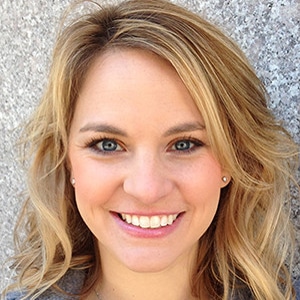Decreasing Childhood Anxiety with Play Therapy and CBT

Andrea Driggs McLeod
Program Goals:
The goal of this workshop is to provide participants with information about how to successfully implement play therapy and playful Cognitive Behavioral Therapy approaches with children experiencing anxiety. Play Therapy is relationship-based and provides children with 1) the opportunity to self-direct; 2) the experience of control and mastery; and 3) the experience of a permissive environment and relationship in which they can access natural healing mechanisms such as post-trauma play. Children who suffer from anxiety can benefit from opportunities to work with clinicians who are able to gain an understanding of the child’s perspective, experiences, and triggers. Clinicians who learn to utilize effective play therapy and playful CBT skills, are better able to both allow and encourage children to express and release affect, explore alternative coping skills to gain understanding and become more regulated, and begin to manage thoughts and emotions that can feel overwhelming or frightening. This workshop will serve to develop and enhance participants’ skills to integrate and implement an integrated approach highlighting play therapy and CBT in their settings and amplify children’s exploration of the material they externalize, within a safe, predictable environment. This program will teach participants the benefits of adding play therapy to their CBT services and vice versa, exploring how a fully integrated approach provides flexibility and playfulness while giving children useful strategies for coping with difficult thoughts, emotions, or behaviors.
Objectives:
The specific objectives of this course are for participants to gain and demonstrate the following content areas:
- Apply a minimum of two CBT principles into play therapy sessions
- Demonstrate an understanding of three specific benefits of integrating play therapy and CBT principles
- List two examples of how play therapy and CBT can be viewed as compatible
- Identify a brain based approach to anxiety in child friendly language
- Demonstrate knowledge of at least 3 ways the body gives clues that anxiety is on the rise.
Program Schedule:
The schedule will consist of lecture, discussions, and experiential work.
9:00am – 9:30am
Introductions and needs assessment: Participant’s “wish list”
9:30am - 10:45am
Didactic presentation of basic play therapy and CBT skills, the relevance of phenomenological experiences, and basic principles to implementing a successful CBT-based play therapy practice.
10:50am - 11:00am
Break
11:00am - 12:00pm
Experiential work with emphasis on integrating play therapy skills and goals to CBT techniques and vice versa
12:20pm - 1:00pm
Lunch
1:00pm - 2:30pm
Didactic presentation highlighting the concepts of negative thought patterns, core beliefs, and cognitive distortions in child friendly and playful ways
2:35pm - 2:45pm
Break
2:45pm - 3:00pm
Didactic presentation highlighting themes and symbolic meaning in play
3:00pm - 3:30pm
Wrap Up and Question
References (Listing must include at least 4 references from journals from the last 10 years)
Art, Play, and Narrative Therapy: Using Metaphor to Enrich Your Clinical Practice
Lisa B Moschini (2018: New York, NY: Routledge)
Attachment Centered Play Therapy
Clair Mellenthin (2019: New York, NY: Routledge)
Counseling Families: Play-Based Treatment
Eric J. Green, Jennifer N. Baggerly, Amie C. Myrick (2015: Lanham, MD: Rowman & Littlefield Publishers)
Creative CBT Interventions for Children with Anxiety
Liana Lowenstein (2016: Toronto, Canada: Champion Press)
Cultural Issues in Play Therapy, Second Edition
Edited by Eliana Gil, Athena A. Drewes (2021: New York: The Guilford Press)
Doing Play Therapy: From Building the Relationship to Facilitating Change
Terry Kottman, Kristin K. Meany-Walen (2018: New York, NY: Guilford Press)
Essential Play Therapy Techniques: Time Tested Approaches
Charles E. Schaefer, Donna Cangelosi (2016: The Guilford Press)
Integrative Play Therapy with Individuals, Families and Groups
Shlomo Ariel (2019: Routledge)
Play-Based Interventions for Childhood Anxieties, Fears, and Phobias
Edited by Athena A. Drewes, Charles E. Schaefer (2018: New York, NY: The Guilford Press)
Play In Family Therapy, Second Edition
Eliana Gil (2016: New York, NY: Guilford Press)
General Course Information
This course is limited to 20 participants and is designed to facilitate experiential work, group discussion, and processing of clinical material. Participants will have ample opportunity to discuss their specific needs and clinical questions. Participant feedback will be sought out throughout the day.
Clinical case discussions will adhere to HIPPA regulations regarding client confidentiality.
Target audience is Mental Health Professionals: Social Workers, Psychologists, Licensed Professional Counselors and Licensed marriage and Family Therapists.
The program is Beginning Level
This event is sponsored by Starbright Training Institute. Starbright Training Institute is approved by the Association for Play Therapy to offer continuing education specific to play therapy (APT Approved Provider No. 96-029).
Myriam Goldin, LCSW; RPT-S, is Director of Starbright Training Institute. Phone: 703-679-7054. Email: starbright.inst@outlook.com Web Page: starbrighttraininginstitute.com
Grievance Policy
STI seeks to ensure equitable treatment of every person and to make every attempt to resolve grievances in a fair manner. Please submit a written grievance to: Myriam Goldin, LCSW; RPT-S, Director of Starbright Training Institute. Phone: 703-980-2886. Email: starbright.inst@outlook.com Web Page: starbrighttraininginstitute.com
Grievances would receive, to the best of our ability, corrective action in order to prevent further problems.
Accommodations for the Differently Abled
Starbright Training Institute’s training facilities are handicap accessible. Individuals needing special accommodations please contact the Director of Starbright Training Institute. See contact information above.
There is no known commercial support nor conflict of interest for this program.
Course Instructor Contact Information
Name: Andrea McLeod LCSW, RPT-S
Website: www.GilInstitute.com
Email: amcleod@gilinstitute.com
Phone: 703-852-7954